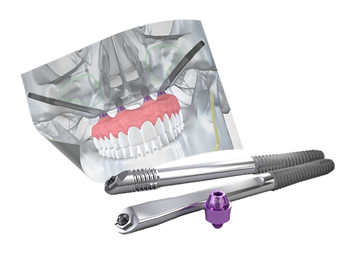Zirconia vs. Titanium Dental Implants:
"Are zirconia dental implants better than titanium?" If you are looking for dental implants, this is a totally valid question that might come to mind. Patients are concerned about the materials coming into contact with their bodies and their impact on health. In the case of dental implants, it's generally ideal to use less reactive and least toxic material. For a long time, the trend has shifted; people avoid using metals in their bodies. Before starting, you must understand both implants' benefits, risks, and current state.
What are Titanium and Zirconia Implants?
Titanium implants replace damaged or missing teeth placed on top of an existing tooth. This is surgically fixed into your jawbone. In dental implants previously, titanium implants have been the industry standard and were widely regarded as the ideal choice. Though titanium implants have been shown to give good long-term clinical outcomes in terms of functional success, complexity due to soft tissue recession is widespread.
Zirconia implants are alternatives to titanium implants, which have recently gained enough demand for holistic density. Zirconia dental implants are found as a non-metal alternative to titanium implants. It's a ceramic material white in colour. Zirconia consists of the elements Zirconium and Oxygen. Zirconium has an atomic number of 40, making it a transitional metal, but it is not considered metal for its metal oxide structure. Zirconia implants are good for people who have thinner gingival tissues. While Zirconia is a very strong material when subjected to compressive forces, its elasticity is quite low. Even while adjusting, it may lead to micro-cracks. Top-class implant manufacturers have designed high-performance zirconia to solve this problem, making it easier for these dental implants to be left undisturbed.
Why Zirconia Dental Implants?
Though it depends on your choice, Zirconia dental implants may be better for you.
- Zirconia has superior soft-tissue response along with biocompatibility to that of titanium implants.
- Titanium implants are very prone to allergy, though the composition of Titanium alloys varies depending on the specific implant. Therefore patients seek metal-free Zirconia implants.
- Zirconia implants do not have any dark colour visible through the gums, whereas titanium implants carry a risk of tissue discolouration showing through the gums.
- Most importantly, zirconia implants have no battery effects and are excellent at resisting corrosion.
Cost of Zirconia Implants:
Zirconia implants in India are 50-70% less expensive than in the UK, USA, and Australia. It costs Rs. 10000 per crown in India for Zirconia classic and Rs.13000 for zirconia premium. The zirconia classic full arch bridge costs Rs. 110000, and Rs. 140000 for the premium arch bridge.
What are the advantages of titanium Dental Implants?
- The long-term success of zirconia implants has yet to be proven. On the other hand, Titanium implants have gone through multiple design improvements leading to long-term success rates between 94-97%
- Small-diameter zirconia implants are proven problematic. One research shows that every implant with a diameter less than 4mm is prone to fracture.
- There are still limited options for zirconia implant designs; for challenging cases, it's impossible to get immediate results.
- In comparison to zirconia, titanium has lower fracture strength. This has excellent biocompatibility with the bone and gum tissues.
Cost of Titanium Dental Implants:
We serve Titanium Dental Implants as well, along with full-mouth implants. Titanium implants are costly, ranging from Rs. 10000 to Rs. 100000. This depends on the patient's choice and priority. Hiremath hospital provides single-tooth implants, full-mouth implants, and other demanding dental implants according to the patient's needs.
Dental implants are gaining popularity daily; you must pick up what’s good for you. Titanium and Zirconia are the only two elements that do not prevent them from integrating into the bone. Though both implants are famous among patients, Titanium implants' failure rate is considered significantly lower than that of Zirconia implants. However, for many patients, aesthetics is a particular concern, and sometimes zirconia may be the preferable choice for people with metal sensitivities. But whether you do Zirconia implants or Titanium implants, with careful maintenance, dental implants last for long, mostly five years and sometimes longer than that. To increase the validity of your implanted teeth, you must maintain an oral hygiene routine as much as possible. Choosing the right implant is important for you; discuss it well with your dentist before you move ahead.

